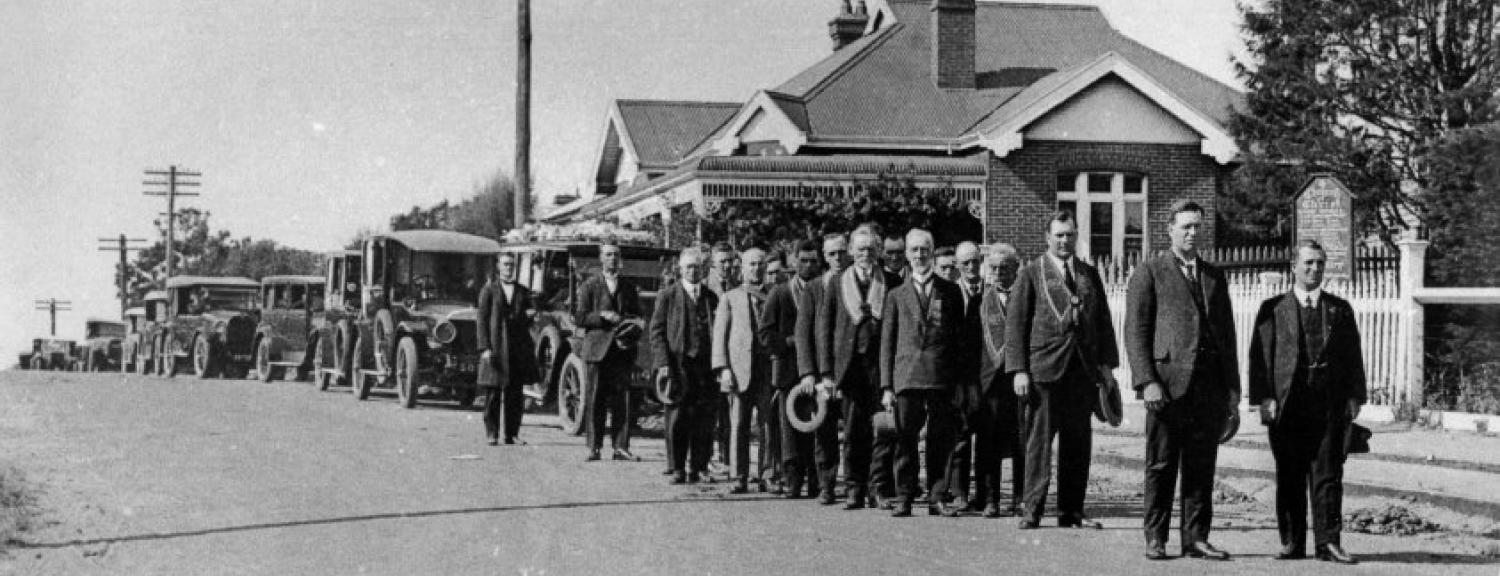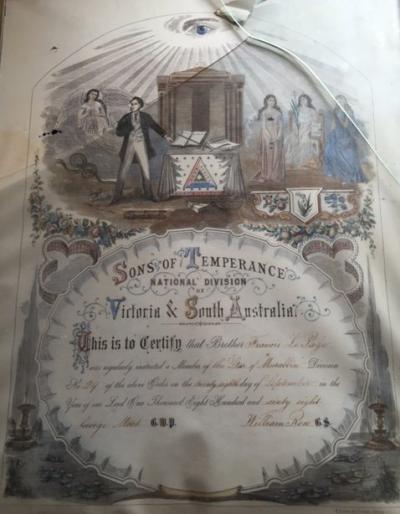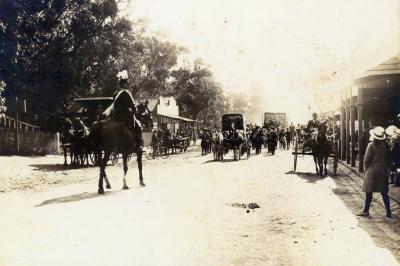Certificate of initiation for Star of Moorabbin Division of Order of Sons of Temperance for the initiation of Francis Le Page into the Moorabbin Division, 28 September 1868.
Date:
1868
Courtesy:
Len Le Page
Collection:
Kingston Collection, City of Kingston



